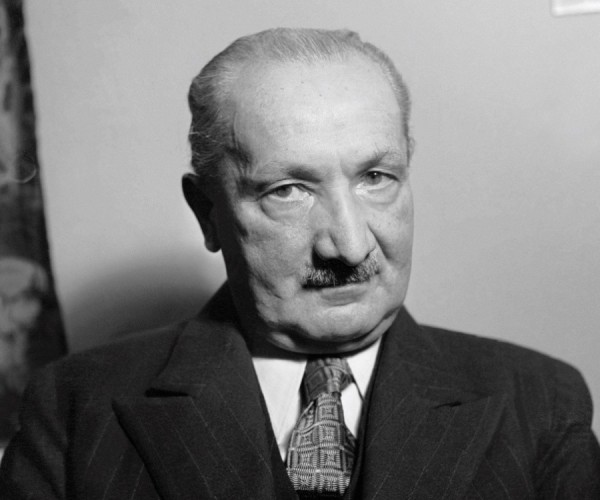The organic critique of modernity
The American Interest wrote up an interesting profile of recent interest in the writings of German philosopher Martin Heidegger, who we might describe as an organic critic of modernity:
Instead, they take the essence of his critique of rationalist Western universalism and the structure of his solution, which is to retrieve a lost, organic communal life not as a traditional inheritance, but through a revolutionary project.
Taking these two movements as representative examples of a certain strain of Heideggerian political influence, what stands out is, first, the comprehensive dissatisfaction with the rationalist order, in each case described as a Western, politically liberal, or capitalistic set of structures. Second, in this view, liberal universalismâ — including its insistence on human rights, rights of property and contract, and the attendant rule of law — stands for the thinnest, narrowest basis of community, and indeed represents the corruption of truer, thicker, particularist forms of communal existence. Third, the power of the established liberal order is sufficiently entrenched to warrant, even to require, violent force in order to disrupt it. And fourth, urgently required though it might be, the political form of that post-revolutionary order is apparently ambiguous.
Modernity consists of a narrowing of focus to the material and instant. All people are equal; like an assembly line, universals act upon them and channel them toward ideologically correct behavior and self-interest. Connections to the community and nature are lost through this assertion of modern control.
Opposing this, the organic society is a broadening. It considers all factors at once, and sees society not as a bucket of sand but as something like an ecosystem, where unequal people in different roles collaborate toward an end, which is the health of the society itself. Modernity does not even have a basis for understanding this.
The organic society is at the root of traditionalism, and even the German wanderlust literary school of Hesse and others who undoubtedly influenced Heidegger. It is not a third way; it is an entirely different way, separate from politics and the self-consciousness it imposes on all.
Interest in Heidegger shows the most recent burst of modern people desiring to understand this ancient and future way of living. At the very least, it provides a toe-hold for those who want to see what might be on the other side. Its increasing volume shows how much they are drawn, on an aesthetic and emotional level, to what they see.
Tags: irrationalism, Martin Heidegger, organic society, rationalism










